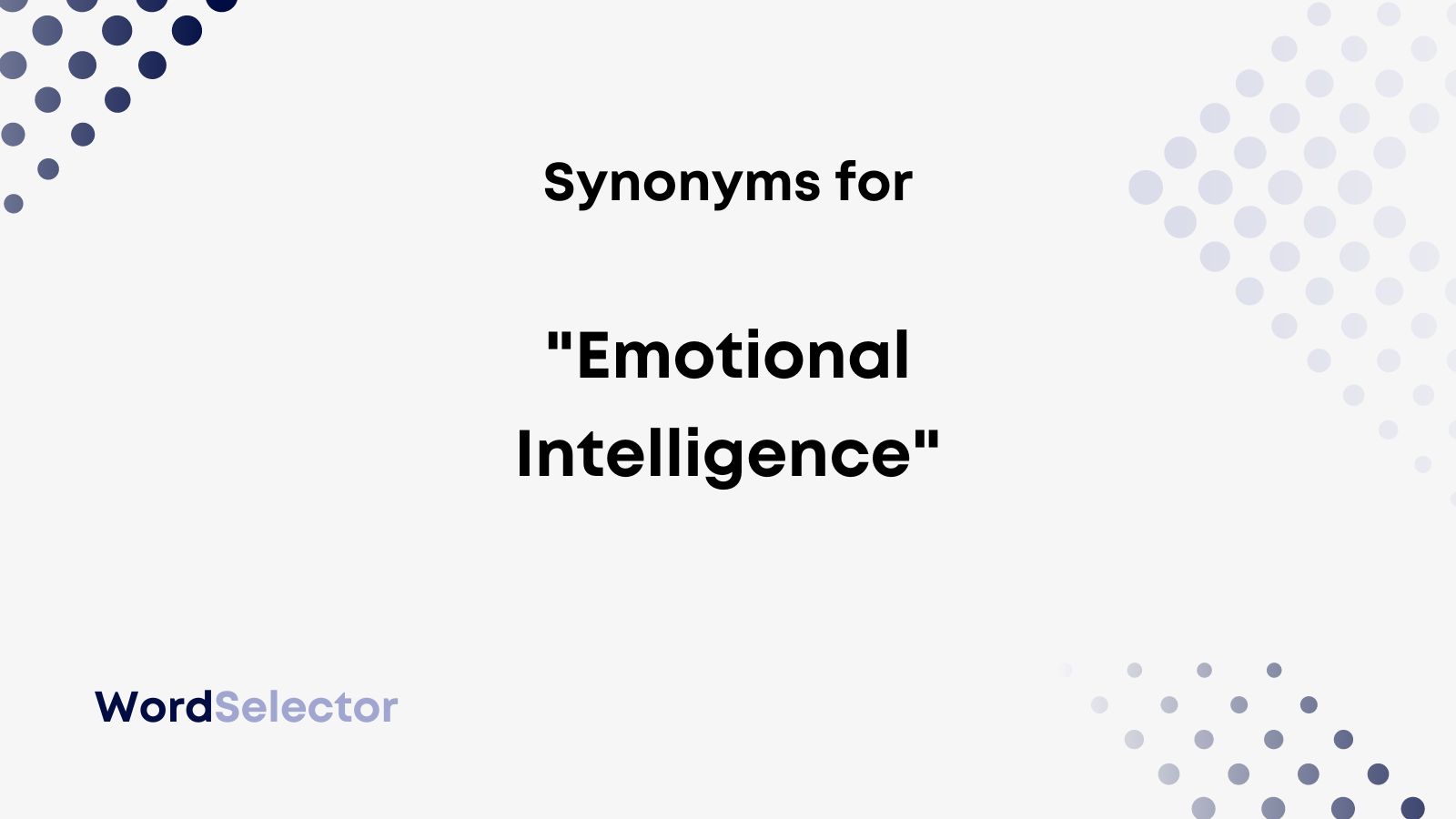Do you want to understand better ways to talk about someone’s emotional intelligence?
Perhaps you’re concerned that the phrase itself isn’t a good fit for every situation.
Well, it’s a good thing you’ve come across this article, then!
We’ll teach you how to say “emotional intelligence” on a resume or other mediums, depending on your tonal needs.
Other Ways to Say “Emotional Intelligence”
- Interpersonal sensitivity
- Relationship management
- Empathetic understanding
- Social intelligence
- Interpersonal effectiveness
- Empathetic intelligence
- Personal and social competence
- Emotional literacy
- Social acumen
- Social awareness
- Emotional resilience
- Empathetic proficiency
- Interpersonal insight
- Social competency
KEY TAKEAWAYS
- “Emotional intelligence” is correct and works well when talking about someone’s ability to communicate effectively.
- “Interpersonal sensitivity” is a great formal synonym to help you mix things up.
- “Relationship management” works really well as a slightly more informal alternative if that works for you.
Keep reading to learn how to say someone has high emotional intelligence in different cases. We’ll explore both the best formal and informal alternatives to help you out here.
Also, you can read the last heading to learn whether it’s correct to say “emotional intelligence.” Then, you’ll know whether it’s good to write it or best left out of your work.
Interpersonal Sensitivity (Formal)
We recommend using “interpersonal sensitivity” as a professional way to say “emotional intelligence.”
Generally, this will allow you to discuss someone’s high level or lack of emotional intelligence, depending on what suits the situation.
For the most part, it keeps things informative and sincere.
It helps the readers to understand what you’re talking about quite easily, too.
The more sensitive someone is to interpersonal matters, the better their emotional intelligence.
You could use this when assessing an employee via email.
And you can review this email sample to learn more about that:
Dear James,
Your interpersonal sensitivity really helps you to stand out here.
I’d like to offer you the permanent supervisor position if that appeals to you.
All the best,
Kylie Rae
We also recommend using this in a resume. It’s a good opportunity for you to talk positively about yourself.
After all, if you believe you have high emotional intelligence, why shouldn’t you show that off?
Feel free to review this resume sample to learn a bit more:
I am excellent when it comes to interpersonal sensitivity. Therefore, I believe this team leader role is perfect for me.
Relationship Management (Informal)
Another way to say “emotional intelligence” is “relationship management.”
This is a slightly more informal phrase that works well when talking about coworkers.
The better someone is at managing relationships, the more emotionally intelligent they are.
Therefore, you can use this to say “emotional intelligence” in simple words. After all, people are familiar with relationships (both privately and in the workplace), so it doesn’t require more of an explanation.
It also helps that the phrase is still quite respectful. That’s why it works quite well in most contexts.
You can review this sample email if you still need help with it:
Hey Marcus,
Since you have great relationship management abilities, would you talk to the team?
I think you’re going to have a much easier time getting everyone to reconcile.
All the best,
Jon Paulson
You may also use this when writing an essay. It could work well if you’ve studied a small group of people to learn more about their emotional intelligence as a whole.
This essay sample will also help you to understand a bit more about it:
I have studied their relationship management skills to learn more. The results I found were very interesting.
Is It Correct to Say “Emotional Intelligence”?
It is correct to say “emotional intelligence.”
It’s also professional. So, it’s a fantastic way to describe someone’s ability to communicate their emotions effectively.
The higher someone’s emotional intelligence, the better they are at maintaining relationships (both private and workplace-related).
You can review this example to learn more about how to use “emotional intelligence” in a sentence:
He has a lot of emotional intelligence. He’s able to diffuse situations quickly by communicating with his peers.
However, if you’re going to use the phrase, you need to be sure of a few things.
First, make sure you’re writing “intelligence” as a noun, not an adjective.
For example:
- Correct: He has a lot of emotional intelligence.
- Incorrect: You have no emotional intelligent.
Second, you can use the adjective as long as you change “emotion” to its adverbial form.
For instance:
- Correct: She is emotionally intelligent.
- Incorrect: You are emotionally intelligence.
Before you leave, you should bookmark this page! Then, you can remind yourself of another name for “emotional intelligence.” After all, you never know when it might come in handy again.

